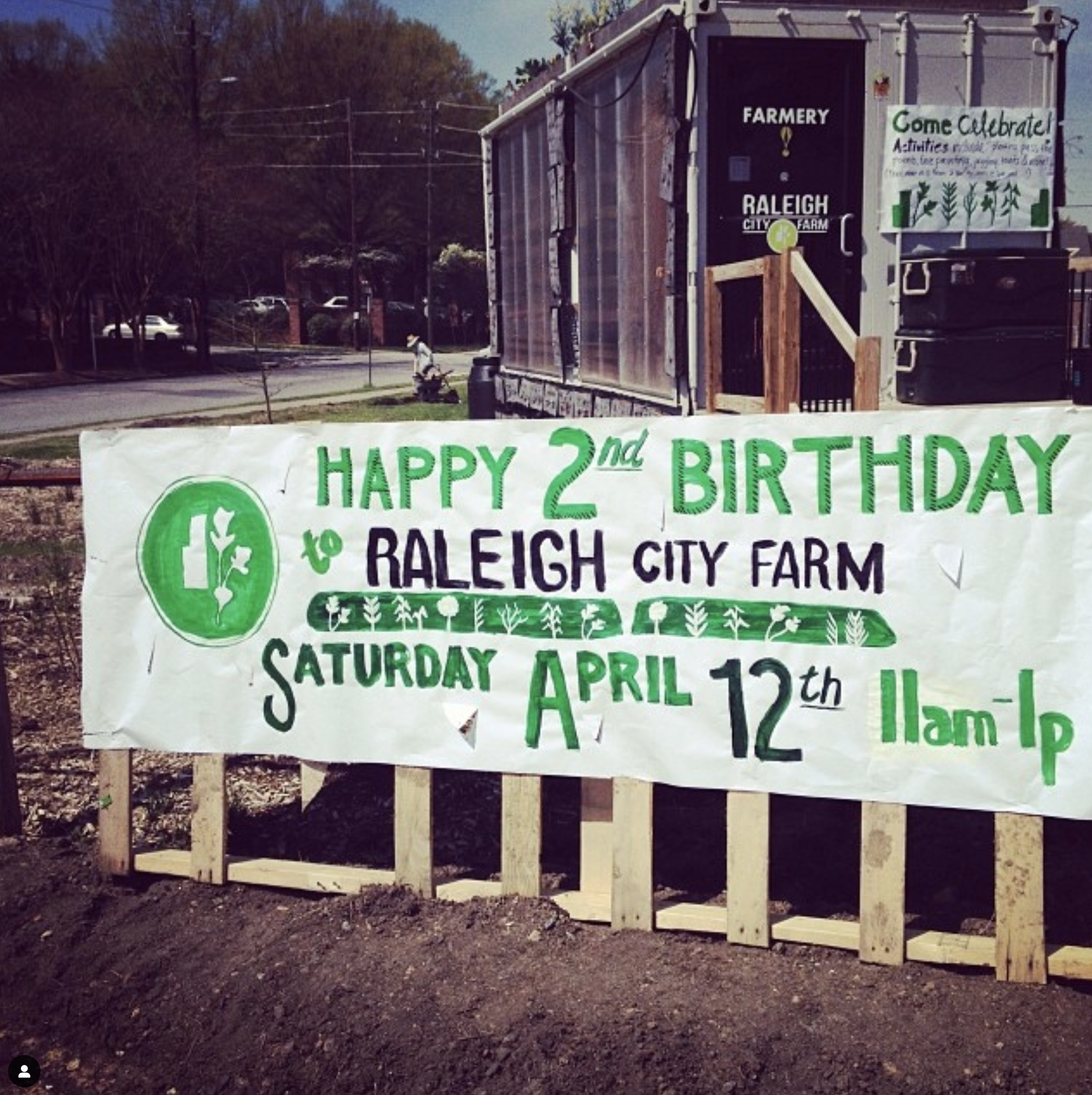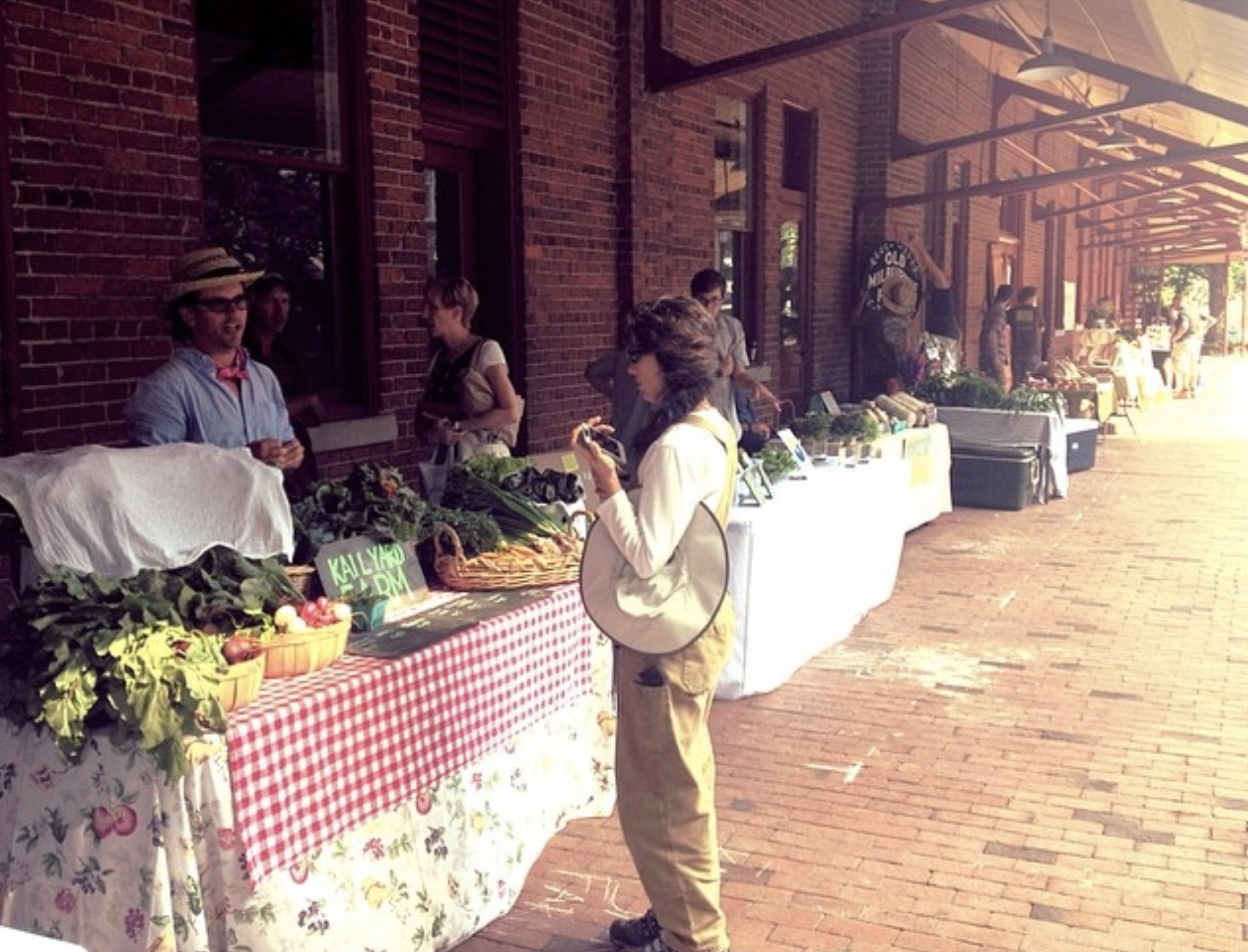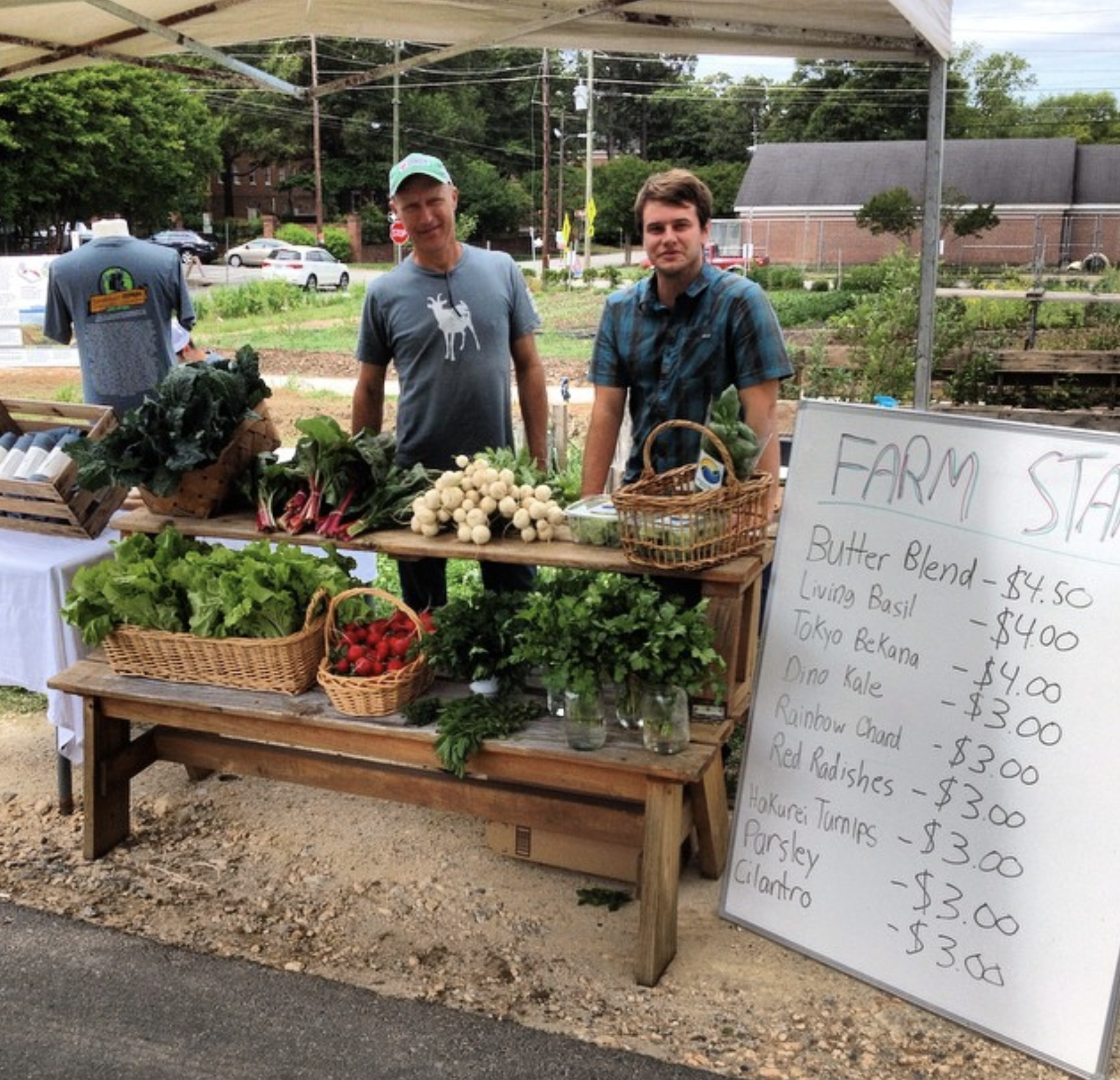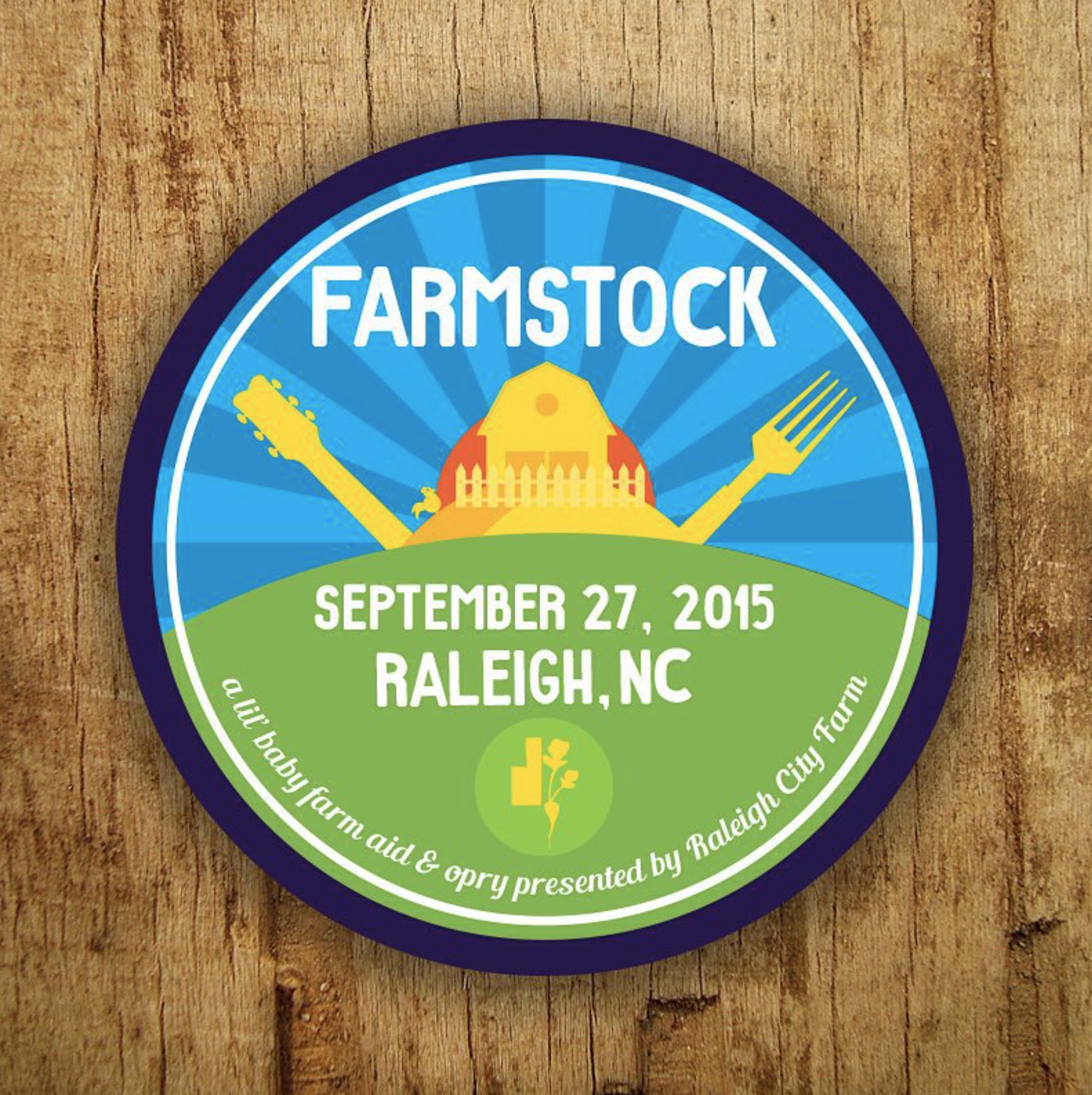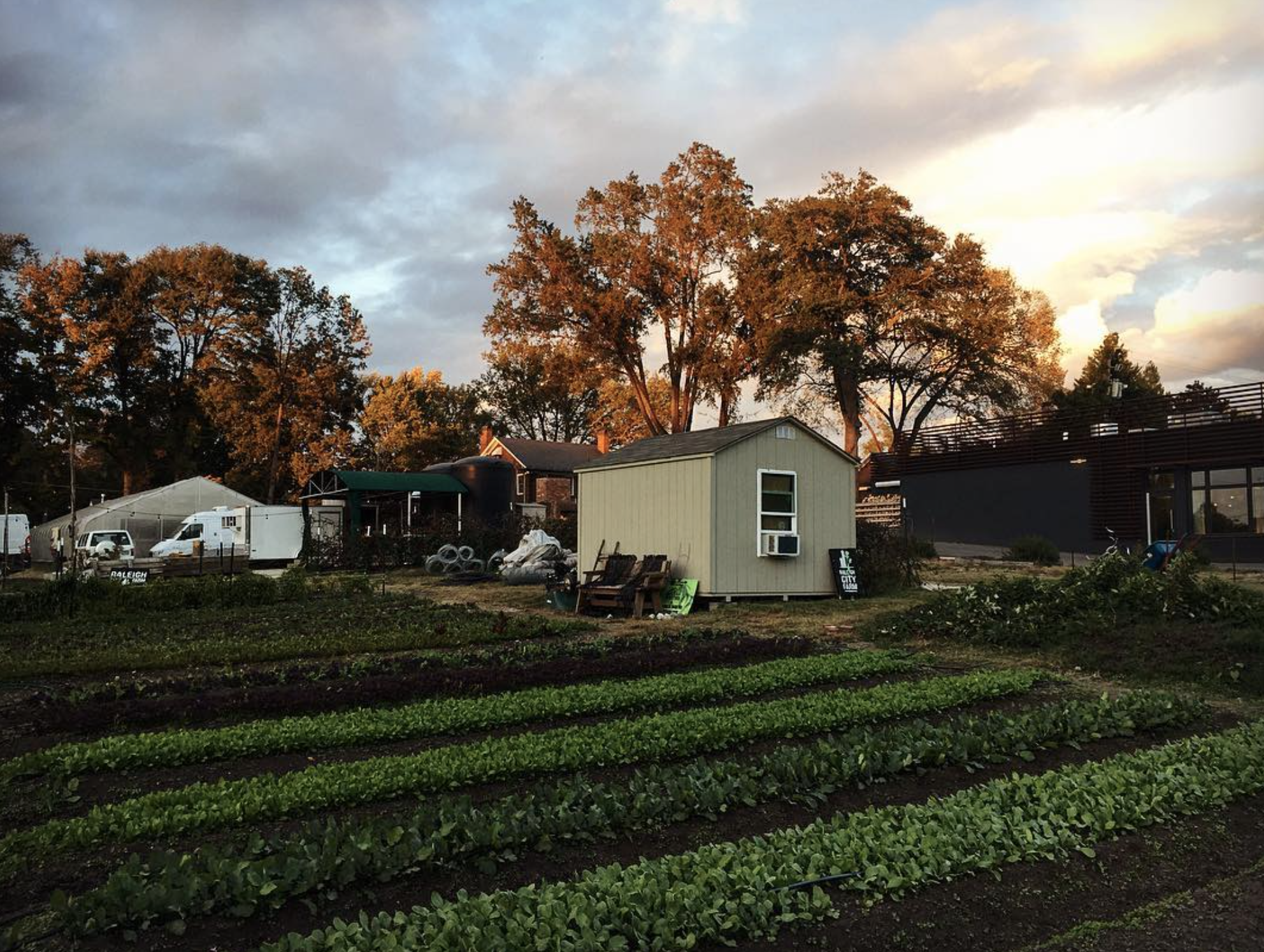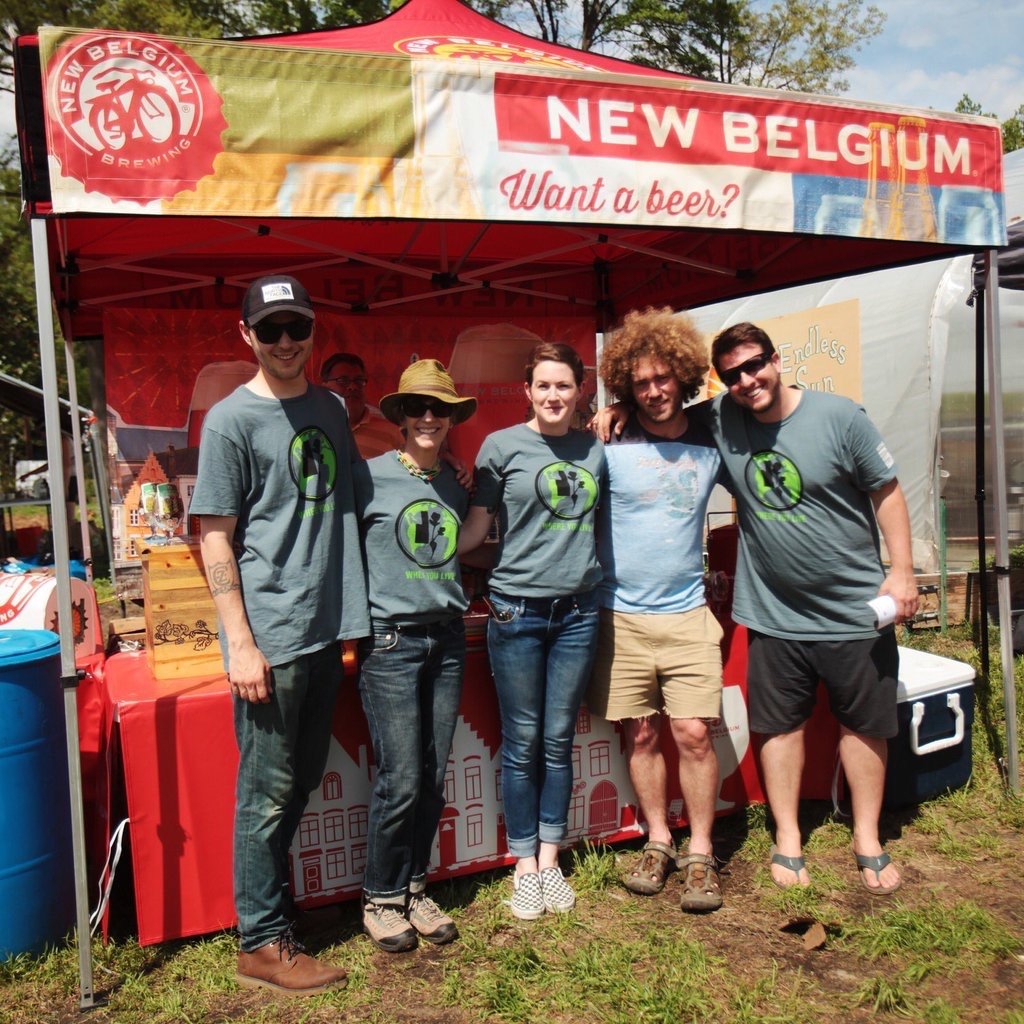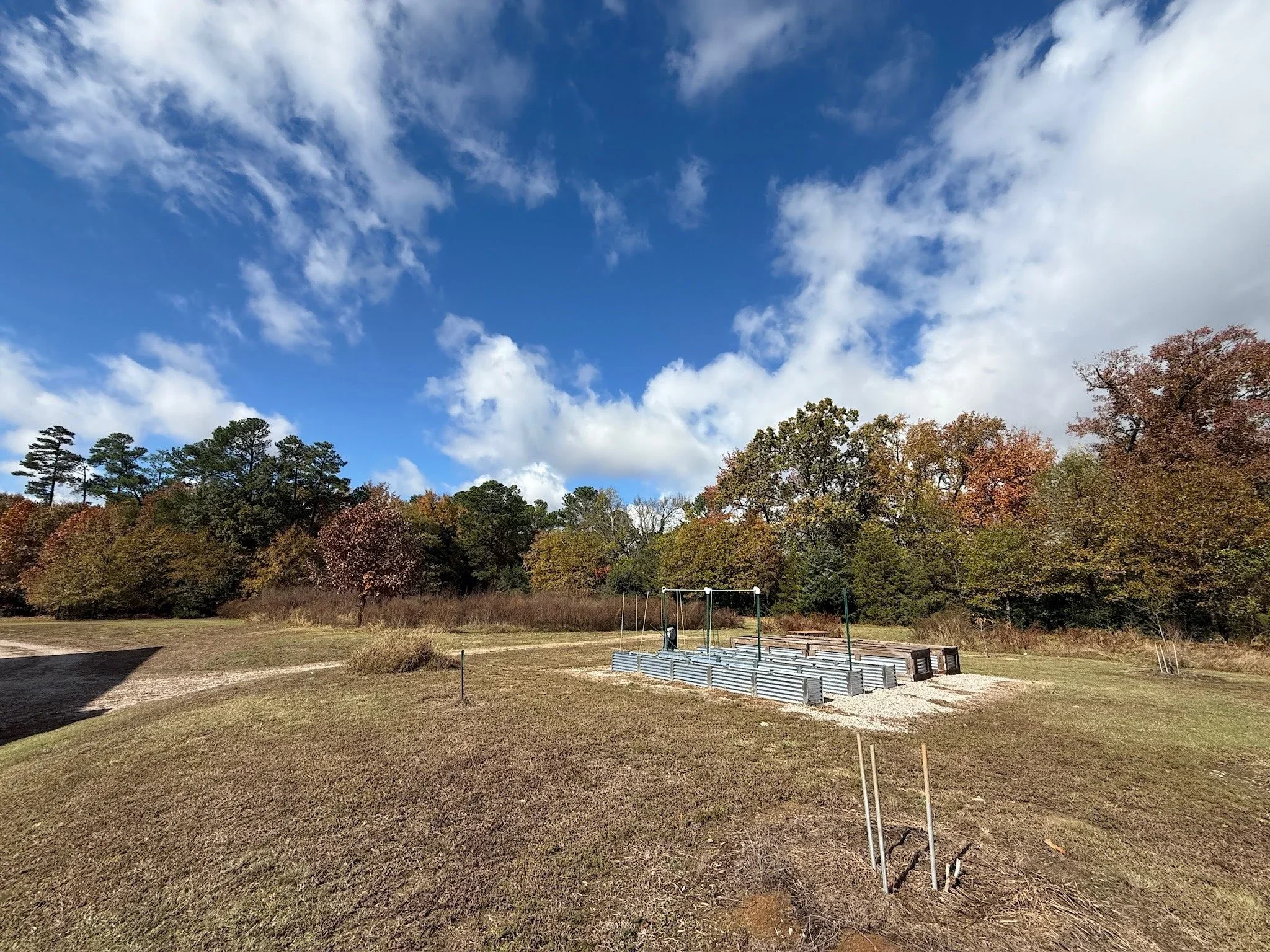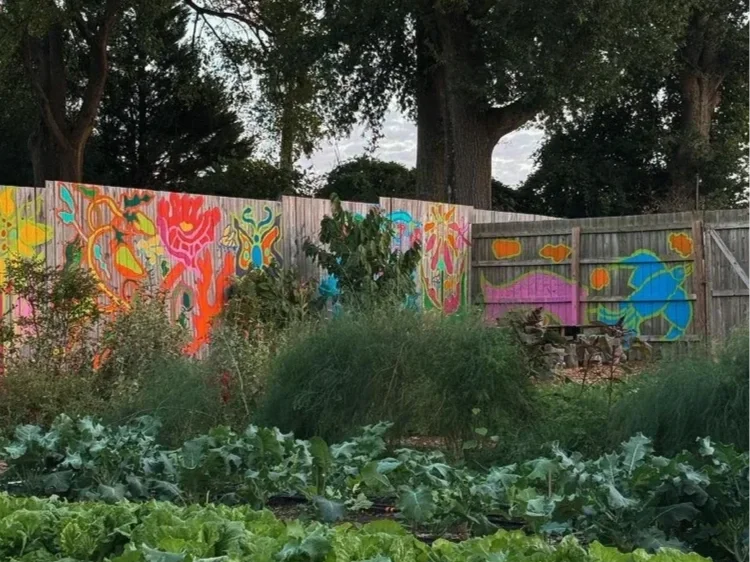Raleigh City Farm’s Origin Story
“A place where anyone can learn about farming.”
“A place where anyone can learn about farming.” That’s what Laura Fieselman scribbled in a notebook on a January 2010 afternoon in the car as she and Laurel Varnado Passera journeyed across the southern Appalachian mountains. “Events; community space; kids;” she wrote as they talked, “fit with Raleigh’s sustainability plan.” The two Raleigh residents were en route home after a weekend together in Tennessee.
The Environmental Leadership Program had brought Fieselman and Passera together for the retreat in Tennessee and they’d spent the time deepening their thinking about leadership. Fired up by the trainer’s definition of a leader as “anyone who convenes new conversations that matter,” Fieselman and Passera pulled three additional friends into their conversations about urban farming: Josh Whiton, founder of transit location software company TransLoc; Erin Bergstrom, social justice advocate working with Passage Home at the time; and Jonathan Morgan, a builder and philosopher. Fieselman was managing Meredith College’s sustainability program and Passera working on renewable energy issues at NC State University. With these professional backgrounds, the five Raleigh residents were poised to found Raleigh City Farm.
Founding Faces
Laura Fieselman
Josh Whiton
Laurel Varnado Passera
Jonathan Morgan
Erin Bergstrom
The co-founders spent nearly a year, and filled several additional notebooks with scribbles, hammering out the vision and shape for Raleigh City Farm. Over Sunday brunches they talked rooftop, raised bed, and vertical farming; explored for-profit and non-profit models; weighed farm management options; and researched educational and incubator farms across the country. The vision for the project coalesced around a downtown project that maximized underutilized land and operated as a social enterprise. The co-founders envisioned a productive farm of vegetables, fruit trees, and berry bushes that challenged the imagination on what is possible in the city.
With Fieselman at the helm as the first president, Raleigh City Farm incorporated as a 501c3 non-for-profit corporation. Working with a team of advocates, the details began to come together. In collaboration with John Holmes and Hobby Properties, the farm found a home on 1.3 acres at the corner of Blount and Franklin Streets in the Person Street Business District. Neighbor and lawyer Andrew Petesch, together with the City of Raleigh, helped rezone the acreage to support an urban farm. Designers Erin Sterling Lewis and Erin White helped with layout of the space. Graphic designer Brandi Gull envisioned the logo and Catherine Fieselman developed the tagline “dig where you live.” Neighbors and community members became powerful advocates for the project with contributions in many forms, from homemade ice cream parties (thank you, Duane Beck!) to fundraising and organizational support (thank you, Kristine Ashwood, Lisa Finaldi, and Lisa Grele Barrie!) to starting seeds and amending soil (thank you, Lisa Sluder and Ariel Greenwood!).
Many of these same people stood ready with shovels when it came time to dig Raleigh City Farm’s first rows in March 2012. With $25,000 in hand from initial donations, and a transition to Whiton as the farm’s president/CEO with Ryan Finch corralling the day-to- day operations, Raleigh City Farm broke ground. And the project has been exploring community space and social enterprise, serving people, and learning about farming ever since!











